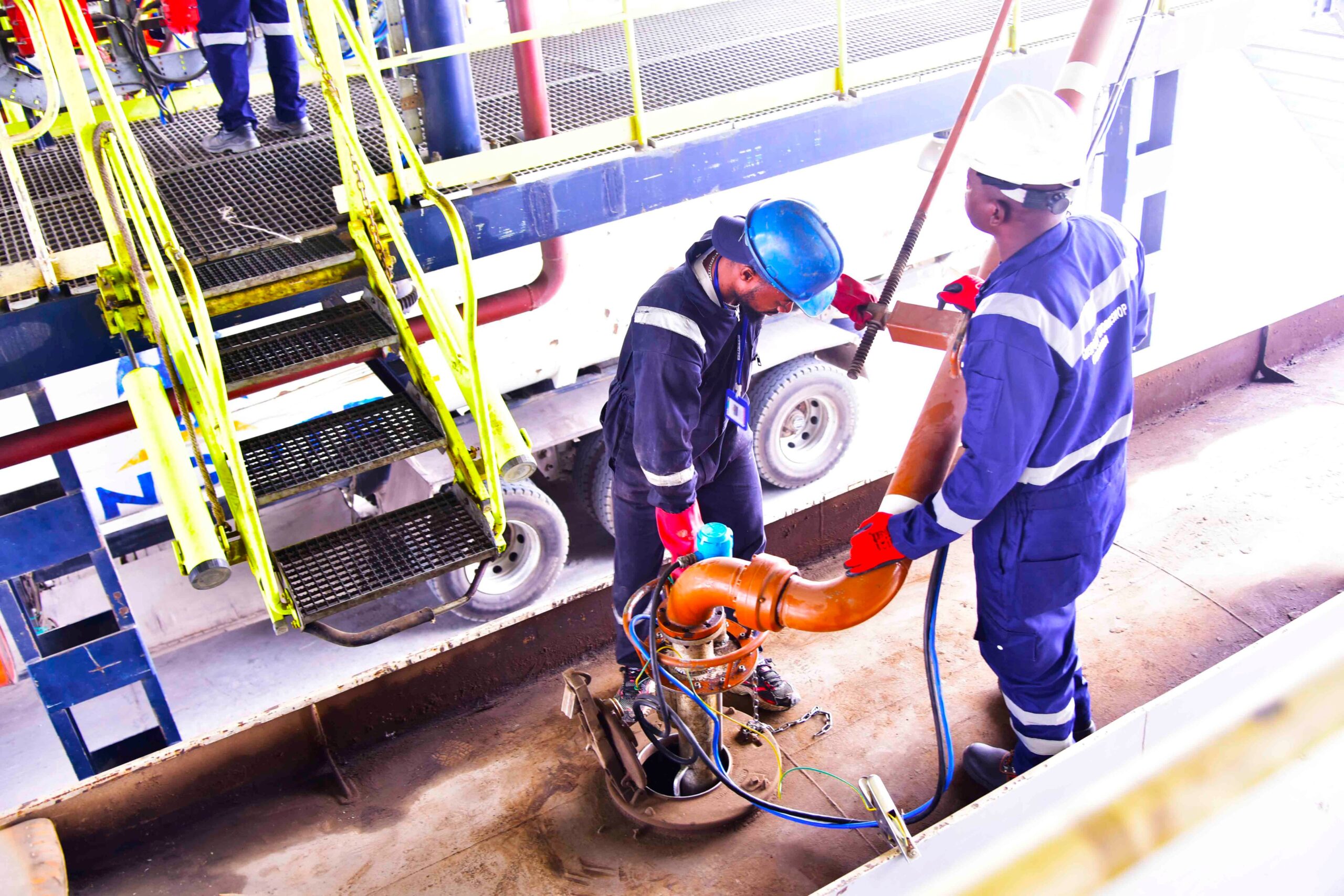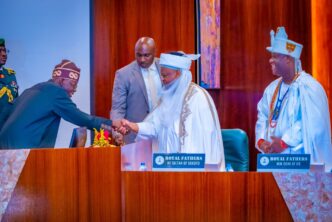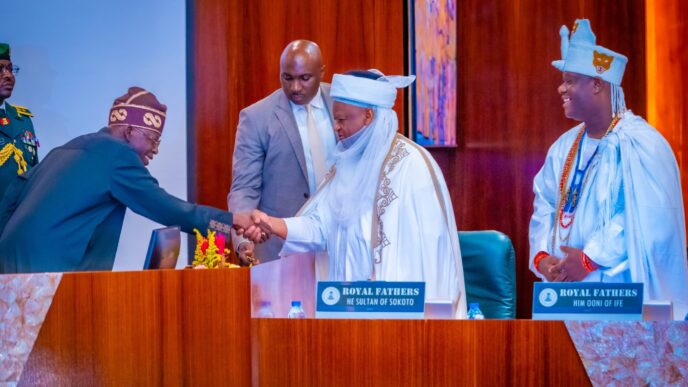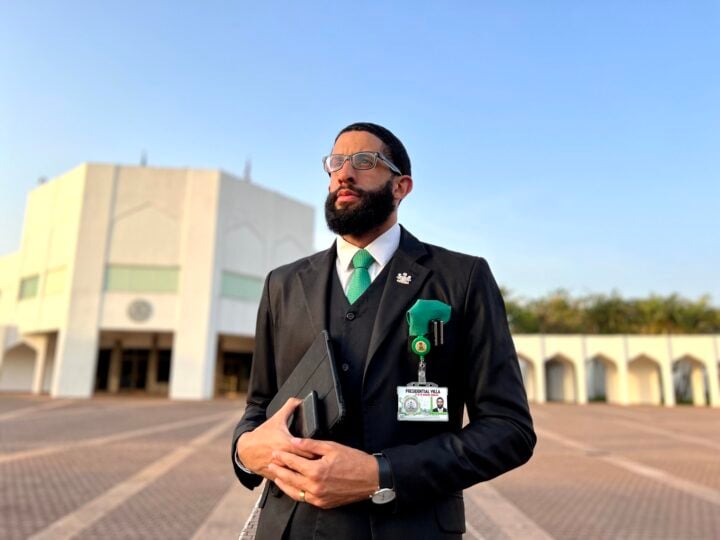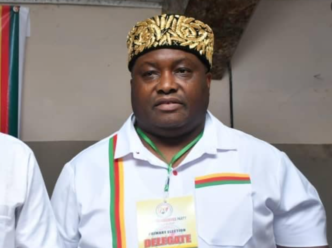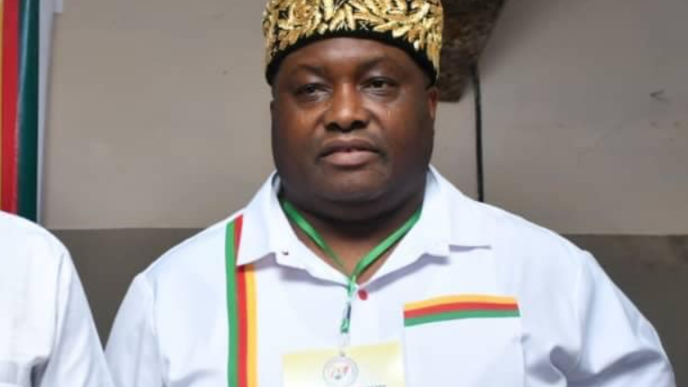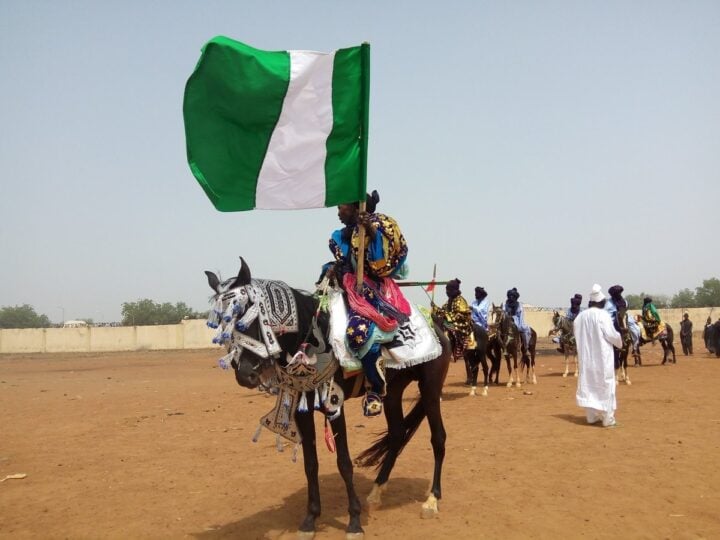Nothing in life could be more ironical and unfortunate than a situation where children of a cloth seller going about unclad, or clad in rags. Or children of a tailor going about in tattered cloths. That is the ironic and unfortunate situation in which Nigeria, as the 1st, and the 6th largest oil producers of oil in Africa and the world respectively, has found itself. We are in the middle of a stream, yet feeling thirsty. Nigeria is about the only oil-producing country that imports the largest volume of refined Petroleum products to meet domestic demand.
One does not have to be a PhD holder in Econometrics, or “Petroleum Economy” to know that Nigeria, blessed with an almost inexhaustible deposit of crude oil, would be richer, if we refine locally, at least what we consume, than if we import. Before Abacha took over power in November 1993, Nigeria was refining locally to meet her local demand, at least. But in came Abacha’s Turn Around Maintenance (TAM) of refineries, sometimes in 1994/95, when we had to resort to importation as “stop gap” measure to bridge the supply gap while the TAM lasted. Ever since then, the cabal in charge of the importation have recalibrated our sociology of oil production and consumption to that of “Export-the-Crude-and-Import-refined-products”. Nigeria has since then, been a net importer of refined petroleum products. We’ve even gone, a step higher now that we have a refinery capable of meeting and surpassing local demand, and have to import crude, if a report making the round that Dangote Refinery imports crude, is anything to go by. Dangote now has to import crude from the US, Libya and others, to meet its daily capacity need of 650,000 barrels per day. Another report says, Dangote has started re-exporting the imported crude, but that has been vehemently denied by the company.
Before anyone could say Jack Robinson, payment of subsidy that was so infinitesimal in terms of the amount being paid before the turn around maintenance, ballooned overnight into something that began to pose a threat to our solvency as a nation. The sociology of subsidy became graduated to something that would later constitute a budgetary harakiri for the federal government, should they decide to continue paying. The reason isn’t far-fetched. The cabal in charge had a watertight web of corruption woven around it, and kept succumbing to their base instincts, and their greed for more became insatiable, while the nation haemorrhaged financially. They brought in empty vessels, pretending to have imported fuel, the basis upon which they billions of Naira in reimbursement. Anyone who managed to bring in fuel, one small time national economic saboteurs would load from the depots and divert some to neighbouring nature, where they’d sell it at a much higher rate.
To continue to perpetuate this heist, they started pushing a narrative that, it would be more profitable, importing refined products (from non-oil-producing nation), than revamping our local refineries in Port Harcourt, Warri and Kaduna, as they have purportedly discovered that it is not a profitable venture as far as the Nigerian business ecosystem is concerned, to try to refine locally. Since then, the venture, open to only a closed circle of some selected few in the corridor of power, have been thriving at the expense of the welfare of the greater majority of Nigerians, though. These beneficiaries of the racket have ensured that the 4 refineries (2)in Port Harcourt, one each in Warri, and Kaduna do not become operational to even refine a single drop of Petroleum product since then. Even though, the Nigerian National Petroleum Company Limited (NNPCL), has the largest collection of Petrochemical engineers on its payroll, drawing billions of Naira in emolument every month, they have not refined enough product to power a Yamaha 50 motorbike in a very long time. Aside from NNPC, I have never seen any of such State-owned oil companies, which perpetually run at losses. ARAMCO (Saudi Arabia) Petrobras (Brazil), Equinor ASA (Norway) Rosneft (Russia), National Iranian Oil Company (Iran), CNPC (China) among others, are examples of state-owned oil companies that turn in humongous profit, year-on-year.
Advertisement
While the future remained bleak for our national energy security, in came a “Social Entrepreneur” called Aliko Dangote, who is adjudged to be the richest man in Africa. A social entrepreneur is that businessman whose major motivation is never profit, but the need to solve a problem in the society. The richest Nigerian, and the richest African alive, who believes he could run a refinery, profitably well, with a minimal support from the government, elected to delve into establishing a refinery to make Nigeria fully self-sufficient in terms of oil.
I refer to Dangote as a Social Entrepreneur because, he dared to invest in a sector that is garrisoned by a well-woven web of corruption that no previous President of the Federal Republic of Nigeria dared touch, or threaten the interests of the cabal. Against all odds, he started the project, which facility is located on a large expanse of swampy land on the Lekki peninsula. It is situated on a 6,180 acres (2,500 hectares) site at the Lekki Free Trade Zone, Lekki, Lagos State. It has a reported capacity to process about 650,000 barrels of crude oil per day. To the chagrin of the oil canal, he started, completed, and got the project commissioned, on the 22nd of May 2023 by the former President, Muhammadu Buhari. Against all odds, he’s started producing diesel (and petrol to follow suit in a matter of weeks). That was the point where he started, unknowingly, stepping on the toes of the “oil import cabal,” who are currently fighting back, as it is characteristic of them.
As Nigerians are eagerly looking forward to seeing the first drop of refined petrol come out of the facility, faces of the anonymous cabal started showing. They showed up in the colour of a certain Ahmed Farouk, who heads the Nigerian Midstream and Downstream Petroleum Regulatory Authority (NMDPRA). He had, while addressing newsmen on the 18th of July 2024 in Port Harcourt, alleged that Dangote Refinery produces substandard diesel, among other unsavory statements that demarket the Refinery:
Advertisement
“I think they are at about 45 percent completion. So we cannot rely heavily on one refinery to feed the nation because Dangote is requesting that we should suspend or stop all importation of petroleum products, especially automotive gas oil (AGO) or jet kero and direct all marketers to the refinery,” he said.
He continued: “So, in terms of quality, currently, the AGO quality in terms of sulphur is the lowest as far as West Africa’s requirement of 50 ppm.
Dangote refinery as well as some major refineries like Waltersmith refinery, produce between 650 and 1200 ppm. So, in terms of quality, their quality is much more inferior to the imported quality.”
He also accused Dangote of having a monopolistic tendency, always wanting the government to suppress others for him, allegations the Kano-born billionaire denies with a great vehemence.
Advertisement
At the imminent risk of sounding pro-Dangote, permit me to say that, this (scheming or attack against Dangote) is not unexpected, considering the earlier narrative being fraudulently driven by those who have failed woefully with the management of the four government-owned refineries. They claimed that operating a refinery in Nigerian isn’t a viable venture. So, tell me, how can he just come and demystify such a well-choreographed fraudulent narrative, without the slightest resistance from the rent-seekers who, through political patronage, populate the oil sector, and have been haemorrhaging Nigeria since time immemorial? There are some systemic landmines put in the way of the refinery, embedded in the Petroleum Industry Act (PIA) 2022. For instance, Dangote had accused the International Oil Companies (IOC) of deliberately starving the refinery of crude, by selling above the international price. But the cabal was quick to quote the so-called “willing buyer, willing seller” provision in the act. Then, I shuddered to ask; what happens to tweaking (amending) the PIA, to take care of the need to safeguard “national energy security”? What happens to local demand being a priority, before considering export, as a matter of national energy security?
Meanwhile, I need to make it clear, at this juncture that, I am not a fan of Dangote, especially when I consider his profiteering behaviour in the cement sub-sector. His plants in Obajana, Okpella, and Ibesse are some of the largest cement plants on the continent, but he uses the advantage to irrigate his monopolistic inclinations to my disgust. He engages in what I consider profiteering at the expense of Nigerians who took pride in patronising his product in a “Buy-Naija-to-Grow-Naija” move. But in this case, oil and gas is a more strategic sector to the Nigerian economy, and corporate existence, and the overall well-being of Nigerians. It sets the tone for what the cost of living would look like. Whatever impacts the prices of oil and gas products touches on, and affects directly, the cost of living.
Alhaji Aliko Dangote is not a Saint, but I think, on this very issue, he deserves the support of Nigerians because, he has, by this singular investment, contributed more to our economy than detractors more closet competitors who happen to be in government agencies. Dangote would, in a counter move, accuse them of having blending plants in places like Malta, rather than siting such in Nigeria. Something that had seen oil imported from that peninsula, jump from nothing to billions of dollars in a year. Nigeria’s petroleum importation from Malta surged significantly to $2.8 billion in 2023. It was about zero from 2017-2022, but it surged to $2bn in 2023, according to data from Trademap, via TheCable.
This current tussle between him and the cabal accusing him of being a monopolist is a referendum on whether we should settle for a Local monopolist, whose wealth remain in Nigeria, or a foreign one whose wealth takes flight out of the country on an annual basis, contributing next to nothing, to our economy.
Advertisement
Another reason they strive to protect the portfolio of oil import, instead of promoting local capacity building, is not far-fetched. They would rather not be fed with their own concoction – planting bureaucratic landmines on the way to frustrate any competing business interest.
To assuage their (the cabal’s) feelings, Dangote has, with a sarcastic tone, offered to put the over $20 billion worth of investment up for sale, urging the NNPCL and their cohorts to come, buy, and run it. I am sure it is a challenge, none of them will be willing to, or capable of accepting, unless we want to add it to the relics of historical failure like what the four federal government-owned refineries have become. When the Dangote Refinery was commissioned last year, Nigerians were told that, the Federal Government, through the NNPCL would, strategically, acquire a 20% stake in the refinery, for national (energy) security purposes. But one year down the line, we were made to understand by Dangote that only 7.2% had been paid for, so far. This is the same running an NNPCL that had collateralized our future daily oil production to a loan obtained from the African Development Bank (AfDB), to the tune of $3billion, for a daily supply of 90,000 barrels of crude per day. I understand they’re processing another of such loan from the Afrexim Bank. They took this loan without investing out of it. Yet, they have the temerity to come out, tongue-in-cheek, to accusing Dangote of monopoly, as if Dangote was responsible for how they turned the State-owned refineries to carcasses.
Advertisement
Now let’s talk a little more about the accusation of monopoly. Monopoly is inevitable in a venture that is as capital-intensive as, running a refinery. Is the Dangote’s supposed monopolistic manipulation responsible for the inability of the Port Harcourt, Warri, and Kaduna refineries to be operational, for the past three decades? There are many Nigerians who could afford to build two of that (Ibeju-Lekki-located) refinery built by Dangote, but they won’t dare because of the Pull Him Down (PhD) syndrome manifesting through NMDPRA boss. If I may ask, is there anything wrong in him seeking government support as a form of incentive for someone who dared to defy every logic in investment analysis and risk evaluation, to salvage what remains of our national pride as an oil-producing nation? The topographic reality of the site of the facility alone is enough to drive away, not only the faint-hearted, but also some big-hearted investors. If the government considers the collateral benefits of the Dangote Refinery – energy security, and employment opportunities, I do not think any concession should be considered too much for the firm. The majority of those who are trying to run him out of business through the Machiavellian machination, do not have as investments anywhere in Nigeria, 0.0001% of what Dangote committed into building that refinery. They’d rather buy houses in London, Dubai and other cities that are fun hubs around the world, than invest in the Nigerian economy.
If I get their logic right, they prefer a country that is dependent on importation (from foreign monopolists) which gulps and weakens our badly needed, but sadly lacking Forex, to one (a monopolist) that has a local monopoly whose capital and profit remain in the country. In other words, “a foreign monopoly is better than a local one”. “We go dey all right las las“, like we say in the Nigerian lingo.
Advertisement
I need to add this, before I rest my keyboard. President Bola Tinubu needs to know that he cannot afford to assume the role of a spectator in this saga, as he’s wont to do, in respect of some burning national issues of late. If he’d forgotten, I would like to remind him that those investors he’d interacted with at different international fora are watching how Dangote is being treated by the Nigerian “socio-economic cannibals.” I can imagine them thinking about what would be their fates should invest in the Nigerian economy, if Nigerians could treat one of their own the way they are doing Dangote now? As a subtle warning to the federal government, the Chairman of the Dangote Group has said he’s halting his planned investment in the Iron and Steel industry, for fear of being labelled a monopoly. Yet, Tinubu plans to run a private sector-driven economy. Are we serious at all? Do we know where we’re going at all? I doubt it.
Look around the world, tell me, which economic power (country) does not have a well-developed steel industry? None. This is a project that Nigeria has wasted over forty years of our national life, and billions of dollars, trying to build, but a confederacy of corruption, bureaucratic bottleneck, and over-politicization have stood in the way. Assuming Dangote is allowed to bring into the sector, the kind of zeal and business acumen, with which he built his cement plants, and this refinery, in no time, Nigeria would become a net exporter of cars and other iron and steel-based products, and safeguard our much-needed Forex, spent in importing luxury cars.
Advertisement
It, however, gladdens the heart to read that the Federal Executive Council (FEC) on Monday approved a proposal that NNPCL sells crude oil to Dangote and other local refineries in Naira, going forward. That is a right step in the right direction. This, according to Bayo Onanuga, Special Adviser on Information and Strategy to President Bola Tinubu, is to also stabilise the pump price in the country. I hope that goes down well with this cabal who have been alleged to own blending plants in Malta.
Nigeria, and Nigerians must decide, as a matter of referendum, what is good for the country, between a local monopolist, the largest chunk of whose wealth would remain within the shores of Nigeria, and monopolists who are based in far-flung place, who have neither a basis nor the intention of keeping their profits in Nigeria.
Protest against hardship: My take:
The proposed protest by Nigerians against socio-economic hardship in the country is very UNNECESSARY and at the same time very NECESSARY.
It is not necessary, if it is going to end up like the one that happened on the 20th of October 2020, leaving in its trail, relics of burnt public facilities, bodies of some innocent Nigerians and security agents. It is not necessary if that is going to be the complexion the protest will take up, at the end of the day.
It is necessary, if it is to address the rudderlessness of President Bola Tinubu’s economic direction, lack of empathy with the pauperised Nigerians – if it is meant to address the hunger currently ravaging the land. But it must be peaceful, and the onus is on the police, and other security agencies to guarantee the safety of the protesters and other Nigerians who are not protesting, in line with the provisions of Section 83(4)of the Police Act 2020.
Tinubu who himself is a product of this type of protests in the past, during the dark days military dictatorship needs to be reminded that Democracy and Peaceful protest are not mutually exclusive. To the contrary, it is an integral part of democracy, which performs a function, akin to what a kidney does to the human body – detoxification. The APC-led government, therefore, has no reason to be scared of protest.
I, however, urge protesters to be decorous and law-abiding, while we put the Nigeria Police on a litmus test, regarding section 83(4) of the Police Act 202
Abubakar writes from Ilorin, Kwara state. He can be reached via 08051388285 or [email protected]
Views expressed by contributors are strictly personal and not of TheCable.
Add a comment

